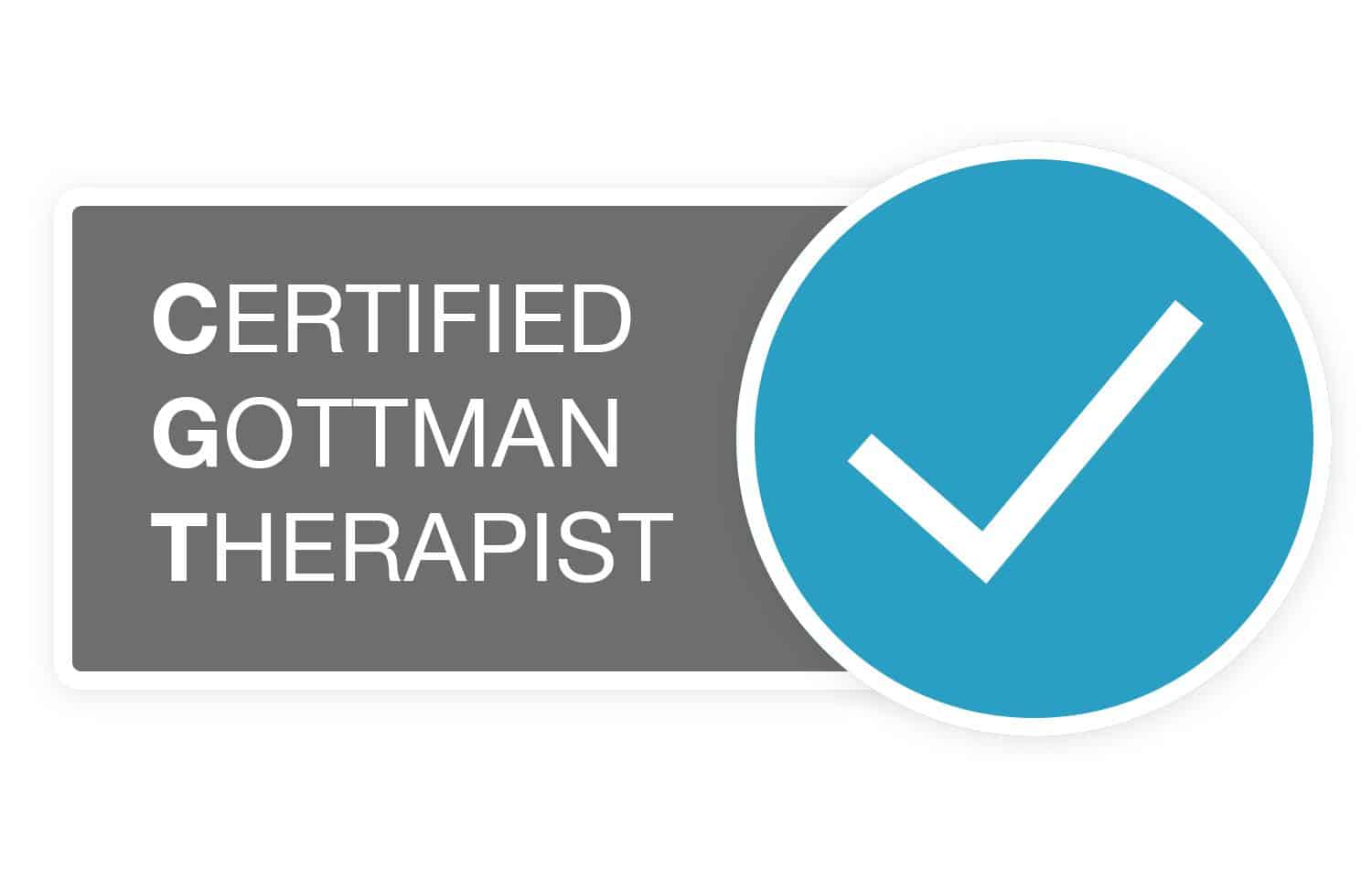Frequently Asked Questions About Therapy
Not at all. People who ask for help know when they need it and have the ability to reach out. Everyone needs help now and then. You already have some strengths that you’ve used before, that for whatever reason isn’t working right now. Perhaps this problem feels overwhelming and is making it difficult to access your past strengths. In our work together, we’ll help you identify what those strengths are and how to implement them again in what is happening now.
Rather than asking the question, “Do you need therapy?” we suggest asking yourself these questions:
- Have you been successful at solving your relationship problems without help?
- Do you want to prevent or stop your problems from escalating and perhaps cause your relationship to end?
- Do you want help developing the skills necessary to have a fulfilling relationship?
Research shows that most couples wait 6 years or more after their problems begin before they seek help. They have tried hard to resolve their conflicts and concerns on their own but have been unsuccessful.
By the time they come to couples therapy the problems have escalated to the point where they often feel helpless and may even be considering breaking up.
When you’ve tried for a long time to get your relationship back on track without success, it’s important to understand that while you’ve made mistakes, it’s not surprising that you’ve not been able to fix your problems.
Why?
Because no one has taught you how to resolve conflict in a relationship or how to deal with your problems when they arise. You likely didn’t learn it from your parents, and you didn’t learn it in school.
This is what therapy is all about – finally learning the communication and conflict resolution skills that will allow you to have a successful relationship.
Yes. Our therapists are relationship experts for individuals who are single as well as those in a relationship.
If you’re an individual who is not currently in a relationship, we can help if you’re grieving the loss of a relationship or want to break patterns that have prevented you from having a fulfilling relationship.
Many individuals in a relationship come to see us without their partners.
You might want to come alone because you want to work on your own problems that you’re having in the relationship.
You may also want to attend therapy by yourself if you’re ambivalent about staying in or leaving your relationship and want help making a decision.
If your partner is unwilling to attend therapy with you, you may also want to attend counseling alone. Once you make positive changes in your behavior, it’s possible that your partner may also make changes that will help to improve your relationship.
In addition, if your partner sees you benefitting from therapy, he or she may later decide to attend therapy with you.
Sometimes therapy doesn’t work because the timing is off. Maybe one or both of you weren’t ready to make the commitment to therapy in the past.
Or, maybe you didn’t stick with therapy long enough to solve the deeper issues, so you reverted back into past negative patterns once you ended therapy.
Perhaps the therapist or the therapist’s style or methods were not the right fit for you.
Just because you didn’t get the results from therapy that you hoped for in the past, doesn’t mean you won’t get better results this time.
Just like anything in life, if you don’t get what you want or need, it’s important to keep trying.
As part of the initial assessment process in couples therapy, we see each of you and your partner alone.
The purpose of these sessions is for you to feel free sharing anything with your therapist that you might not be comfortable telling them when your partner is present in the room.
We will never reveal what you tell us in these individual sessions to your partner without your permission.
The difference is between someone who can do something, and someone who has the training and experience to do that same thing professionally. A mental health professional can help you approach your situation in a new way– teach you new skills, gain different perspectives, listen to you without judgment or expectations, and help you listen to yourself. Furthermore, therapy is completely confidential. You won’t have to worry about others “knowing my business.” Lastly, if your situation provokes a great deal of negative emotion, if you’ve been confiding in a friend or family member, there is the risk that once you are feeling better you could start avoiding that person so you aren’t reminded of this difficult time in your life.
Of course! You likely argue enough at home, so we don’t want you to do that in our therapy office. We create a safe and structured environment for you to work through your problems in a constructive manner.
We show you concrete skills that can help you not only solve your current problems but will help you long into the future. Our goal is for you to have the skills you need so that you likely won’t need to come back to therapy.
Medication alone cannot solve all issues. What medication does is treat the symptoms. Our work together is designed to explore the root of the issue, dig deep into your behavior and teach strategies that can help you accomplish your personal and/or relational goals.
Absolutely. We’ve helped many couples heal when there has been a betrayal.
When infidelity has occurred emotions can be very intense. The person who had the affair can feel ridden with guilt and the partner can experience deep pain and anger.
It can take some time to work through these feelings, but with the will and a commitment, our therapists can help you move through this painful experience and come out the other side stronger than ever.
It’s even possible that your relationship can become more fulfilling than it’s ever been.
Yes. If there is ambivalence about staying together in the relationship, we will help you work through any confusing emotions so you can reach a decision one way or the other.
If you decide to stay together, we can begin couples therapy sessions to help you solve the problems that you were having so you can have a better relationship in the future.
Yes. Often sexual problems occur simply because couples are uncomfortable discussing them.
Our therapists are comfortable discussing any sexual issues with you. We can help you resolve even the most difficult sexual struggles so you can have a more satisfying sex life and a more enjoyable relationship
Dr. John Gottman is one of the most prominent couples’ researchers that exist today. He has been researching what it takes to have a successful relationship for over 40 years.
By observing couples interact for a short period of time, he can predict with over 90% accuracy whether the couple will stay together.
Even with this statistic, any couple can overcome even their most destructive patterns of relating if they are committed to having a better relationship.
We use the Gottman method because it is grounded in science and has excellent practical tools that can help you and your partner enhance your relationship.
Read more about how the Gottman method of couples therapy can help you create a more fulfilling relationship
Yes. We are open-minded and inclusive therapists. We work with you regardless of your race, sexual orientation, or the type of relationship you have.
We won’t judge you. Our goal is always to help you achieve the goals you want with the person or persons you decide to be in relationship with.
Yes. Our therapists can help with any problem you may have in your life.
For example, some of the areas we provide therapy for include:
The length of therapy depends on the nature and severity of the problems you bring to us. Plan on attending at least 10 sessions.
Your problems didn’t occur overnight, and so it’s reasonable to expect that you will have to invest some time in resolving them.
You will get faster results if you attend sessions weekly. This way you can build momentum as you practice new skills at home in between sessions.
We’ll evaluate your progress regularly and together decide if you need more sessions.
Individual therapy sessions are typically 45-minutes in length and couples sessions are typically 60-minutes.
We also do intensive therapy sessions for periods of 2-3 hours. Longer sessions can be helpful if you’re in crisis such as after an affair has occurred.
We’ll discuss the best length of sessions when you begin therapy.
We see clients 6 days a week – Evening and Saturday appointments are available.
Our hours are from 9am - 9pm, Monday through Friday
Saturday from 9-4.
Rates vary based on certification level, training of therapist, and services requested.
We are out of network providers for insurance coverage. You’ll need to check with your insurance company or flexible or health savings account to see if they will cover the costs of therapy with us. We’re happy to provide receipts if you need them.
If you resonate with us and what we have to offer, contact us now to book your no-charge phone consultation.





